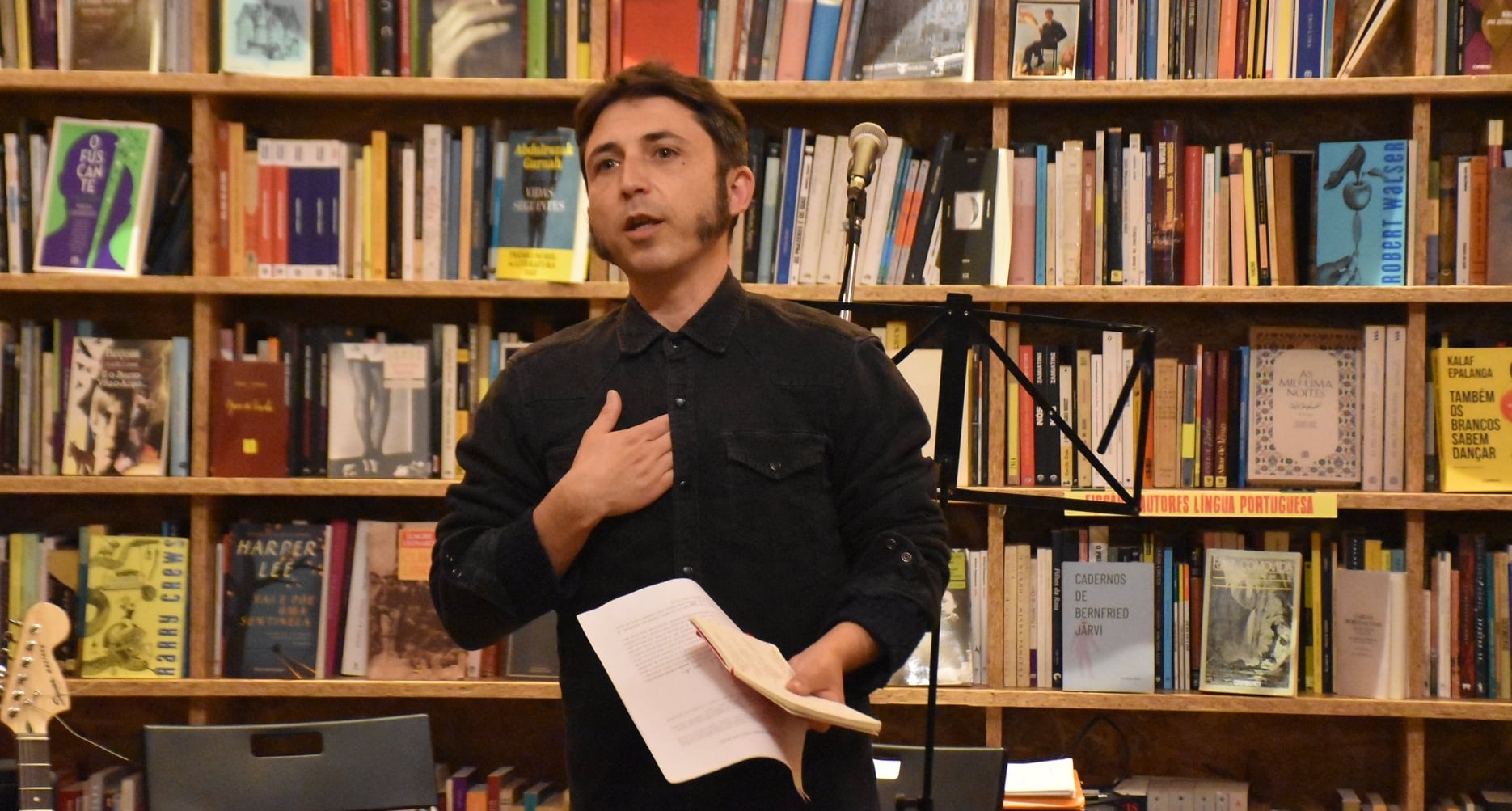Meet Nuno Marques - Postdoc at the EHL

In a "get to know"-interview series here at the EHL web where we highlight our co-workers, Nuna Marques is the first to be presented! Nuno has been with the EHL since the start of his project in June 2021, before we became a KTH Centre. He is an international VR-postdoc, an ecopoet and also a member of the organization team behind the Crosscuts film festival.
What is your background?
I am a researcher and translator of ecopoetry and a poet. My PhD research focused on North American ecopoetry and its entanglements with the atmospheric and the geological dimensions of the Anthropocene. Starting in cultural studies and ecocriticism I moved to the environmental humanities to work with texts in a large sense – poetry created with clouds, protest posters, breathing practices in toxic areas of the Anthropocene –.
What is your role at the EHL Centre?
I am a Postdoctoral researcher at the EHL Centre funded by VR with a 36 month project on breathing on Ibero-American ecopoetry. I am also a member of the organization team of the Crosscuts festival.
Can you give an example of your research or a project you have been involved in?
I have written on how the poetry of Brazilian Marília Floôr Kosby is created by breathing together with cows [ read it here ]; I have explored critiques of sustainability in Sweden and Chile in a PhD course I co-created and convened [ Critiques and Practices of Sustainability course page ]; and I co-edited a publication about the future including first-time translations to Portuguese of environmental humanities works such as excerpts from Kathryn Yusoff’s A Billion Black Anthropocenes; David Farrier’s Anthropocene Poetics and Stefania Barca’s Forces of Reproduction. (PDF coming soon)
What motivates you to work with environmental humanities?
I believe transdisciplinary research from the arts, the humanities and sciences contributes to environmental imagination and influences policies, which is one of the aims of the environmental humanities. A big motivation for me is that the field also asks for freedom to move between disciplines, to infiltrate solidifications and ventilate practices, like air. I think these frontier areas are needed to act towards finding alternatives to the destructive and extractive practices that are the norm.
What do you see as one of the most important questions/focus areas within the field?
An important question is how to influence environmental policies? The envhum brings forth knowledge from the arts and the humanities that have not been listened too when is time to design those policies. At the same time the field has an important role within the humanities of moving on from the focus on narratives an emotion: poetry and other artistic practices convey knowledge and forms of relation with the planet. Not translators of science but practicians of embodied epistemologies
